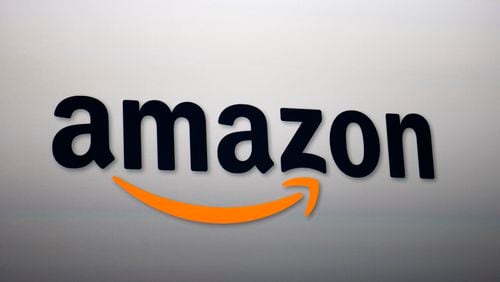Georgia has pledged to roll out the welcome mat to Amazon in hopes of securing its second headquarters. The Legislature may not have received the message.
In the past two weeks, lawmakers defied corporate boosters by voting to let some charities deny adoptions to same-sex couples. And legislators voted to punish Delta Air Lines, the state’s largest private employer, after it severed ties with the National Rifle Association.
That came about a month after the Senate unanimously approved a resolution condemning the National Football League's "hypocritical actions" — a vote that came even as Atlanta began to mark a yearlong countdown to host the Super Bowl.
Tech giant Amazon seemed destined to throw a wrench in an already volatile election year. But critics fear the Legislature’s embrace of divisive social issues may have jeopardized the state’s bid for a once-in-a-generation prospect.
“I already felt it would be a terrible cultural mismatch for a company with a Seattle culture to locate anywhere in the South. This nails it,” said Jon Gabrielsen, who runs a Smyrna-based business consultancy that specializes in market research for growing companies.
“Georgia and Alabama don’t have a clue how foreign and disturbing these antics play to the rest of the nation outside the Deep South — and how it can impact their ability to recruit businesses,” Gabrielsen said.
Even before lawmakers convened in Atlanta in January, the hunt for Amazon’s $5 billion new campus — and the 50,000 high-paying jobs it will bring — had begun to shape political debate in Georgia. Now state politics may have reshaped Georgia’s bid for Amazon.
No one will say for sure whether Amazon has written off Georgia, though officials are confident Atlanta is still in the thick of the secretive race. Amid rumors of an upcoming site visit by Amazon executives, state leaders said the company would surely look beyond the headlines and make its decision based on what actually becomes law.
“I don’t think it helps us,” Gov. Nathan Deal conceded during a press conference where he lashed out at election-year “antics” that made Georgia the butt of jokes on late-night television.
“But I would say this to Amazon and to anyone else who wants to look at our state and see what has happened in the General Assembly,” Deal said. “Look at our record.”
Optimism aside, the Amazon intrigue has added an extra layer of tension to an already tense legislative session. No politician wants to be accused of bungling what could be the biggest economic development deal in Georgia history. But they also must contend with the tug of election-year politics driving both parties to please their bases.
And for Republicans, many of whom will face deeply conservative voters in May primaries, that means flouting the wishes of large corporations they see as too intrusive. Especially when that big firm tussles with the NRA, one of the most influential forces in Georgia politics.
“Some social conservatives believe that politicians are selling their principles — God, guns and what have you — to large companies that are, in turn, bowing to pressure from liberal groups,” said Todd Rehm, a GOP operative. “They resent what looks like a wresting of political power from conservative Georgia Republican voters.”
Those are the Republican voters Lt. Gov. Casey Cagle was wooing last week by threatening Delta — and defending the NRA.
Cagle, the front-runner in the governor’s race, was hoping to land a political knockout blow to his GOP opponents in hopes of winning the May primary without a runoff. He said he had no regrets about the Delta fallout, which he described as a family feud.
“Family members sometimes squabble. But you’re still a family member,” said Cagle, who said he hopes that Amazon will appreciate the “diversity in thought” on display.
“That diversity in thought, as a state, makes us better. It makes me as an individual better,” he said, adding. “I believe that Amazon does see the value in what Georgia has to offer, and we’re very committed to that.”
Collision course
This legislative session, with its stew of ambitious politicians and competing interests, always seemed to set up a collision course with the Amazon bid.
Days after lawmakers convened in Atlanta, Deal tried to defuse a budding conservative revolt by announcing he would call a special session to hash out incentives for Amazon if Atlanta was one of the top three finalists.
He was trying to soothe concerns over a 10-figure incentive package by sparing lawmakers a vote until it’s necessary. But the debate over the tax breaks still became a dividing line in the governor’s race, with some candidates objecting to spending taxpayer dollars to lure a thriving company to Atlanta.
Lawmakers are constantly reminded that their proposals, big or small, could influence the state’s pursuit of a game-changing company. That’s why a broad “religious liberty” bill, similar to the controversial legislation that Deal vetoed in 2016, has been relegated to a committee all year.
Pressure groups have seized on the squeamishness to paint measures they oppose as Amazon-killers. Two separate coalitions have sprung up capitalizing on that theme: a local "Adios Amazon" coalition and a national organization that calls itself No Gay? No Way!
The critics have painted as deal-breakers measures that would impose fees on money wired outside the U.S. and require all government communication to be conducted in English.
And they contested a proposal that would allow adoption agencies to use their religious beliefs as justification to deny gay couples. That measure still easily passed the Senate in February, despite cries that it could repel Amazon and other economic prospects.
Indiana was targeted with a boycott that cost the state tens of millions of dollars after it passed a "religious liberty" bill. North Carolina suffered economic setbacks over a contentious bathroom bill. And in Georgia, lawmakers were warned, the adoption provision could come with an Amazon-sized price tag.
And yet, countered supporters, Amazon's list of 20 finalists includes cities in a string of states with conservative leadership. State Sen. Fran Millar, a Republican sponsor of the adoption measure, said even though Amazon is a "significant force on our policies," it should not be the driving factor in legislative votes.
“I don’t want to talk about Amazon and the effect on business. I’m tired of watching us fail in certain areas, and we have failed these foster children,” said Millar, who said it would encourage more religious adoption agencies to open in Georgia.
“If this broadens the base for opportunities for somebody to find people to love them and raise them,” he said, “then by God I’m going to vote for it.”
‘Take a stand’
Delta’s tailspin in the Georgia Capitol was swift. After the airline ended a discount with the NRA, conservative groups and a chorus of GOP candidates lashed out at the Atlanta-based giant.
Within days, every Republican candidate for governor depicted a $50 million tax break on jet fuel as a corporate giveaway. One of them, Georgia Secretary of State Brian Kemp, called Delta a “corporate coward.” Cagle drew national attention by threatening to “kill” the bill unless Delta reversed course.
“We can’t just kowtow to the type of political pressure that comes against conservative values,” said Cagle, who as president of the Senate can block measures from moving forward. “It’s time to take a stand.”
Cagle’s stance came after more than two days of pressure from conservatives to reject the break, which had already passed the House as part of a broader tax-cut proposal. Soon, phone lines at Cagle’s office were so jammed that voters called Deal’s number instead to vent about his decision, some condemning the lieutenant governor’s threat.
Count Doug Patterson as one of those critics. The Milton resident, who owns a hospitality company, described himself as a moderate Republican but pointed to the NRA flap as reason why he feels alienated by his own party.
“If I was Amazon, I would run like hell from Georgia,” he said. “Between the religious liberty crowd and now the vindictive NRA crowd, no telling what those crazy fools would do to a more liberal company like Amazon.”
Cagle's allies said he could ill afford to remain silent on the issue, which would have left him labeled as a milquetoast conservative by a field of candidates trying to outflank him to the right. State Sen. Michael Williams, another rival in the governor's race who has long objected to the plan, did it anyways: He called Cagle a stooge for "corporate welfare."
Delta said in a statement that it cut ties with the NRA because it wanted to stay “neutral” in the growing gun control debate sparked by the mass shooting at a Florida high school. Behind the scenes, the company’s high-powered lobbyists scrambled to slap together a face-saving deal.
The state’s main business lobbies pointed to other measures moving through the statehouse somewhat overshadowed by the recent spats, including proposals to expand mass transit, cut income tax rates and create a network of business courts. Even after the Senate voted to condemn the NFL, they added, lawmakers also passed a separate resolution welcoming the league’s biggest event to Atlanta next year.
“Every state legislature faces contentious issues,” said Katie Kirkpatrick, the Metro Atlanta Chamber’s chief policy director. “And Georgia’s leaders time and again have focused on the issues that make our economy stronger and expand opportunities for the people who live here.”
Privately, state officials groused about Cagle’s move and worried it could indelibly damage Georgia’s reputation. Publicly, they put on a sunny face and talked about the state’s pro-business climate.
That was Pat Wilson’s job at an event this week at the Georgia Capitol celebrating another lucrative tax break — the incentive that turned Georgia into a filmmaking powerhouse. Surrounded by actors and producers, the economic development commissioner squirmed a bit when asked whether the Delta fallout cost Georgia its Amazon bid.
“There’s a legislative process. We go through this every year,” Wilson said. “But the great thing is the governor, the Legislature — at the end of the day — have been completely supportive for a long time.”
The damage may have already been done. Larry Gellerstedt, the CEO of Cousins Properties, said it’s “naive” to think the Gold Dome debate won’t influence Amazon’s search.
“We’re going to start punishing companies by stances that they take about their company values? These things get noticed,” he said. “They get absolutely included in the dialogue for competing cities and states to use.”
KNOW WHAT’S REALLY GOING ON
Atlanta is one of the cities Amazon says is in the running for its next headquarters. The Atlanta Journal-Constitution will provide unmatched coverage of Atlanta’s bid to lure Amazon. Our journalism will focus on the urgent questions posed by this potentially transformative business deal.
Follow this continuing coverage on AJC.com, MyAJC.com and PoliticallyGeorgia.com.
About the Author








